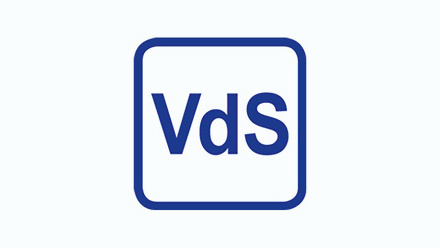Cooperation Euralarm and EFSG making progress
EFSG, the association of established certification bodies of Europe specialising in the fire and security sectors, provides a network of highly experienced certifiers with well-respected quality marks helping manufacturers to access European and worldwide markets. The EFSG members are committed to delivering a quality approval service that is focused on the needs of specifiers seeking reliable products and equipment manufacturers that must bring their products to market quickly. A fast and seamless certification process is in the interest of both the EFSG and Euralarm members.
Therefore, the EFSG certification bodies work together with their associated test laboratories to facilitate the acceptance of each other’s results thereby offering their clients the opportunity to obtain multiple quality marks with minimal duplication and cost. After participating in one of the Advisory Board meetings in 2016 both Euralarm and EFSG started working on exchanging knowhow and info with EFSG members on the implementation of a basic agreement for fire detection products.
Re-establishing the cooperation
After more than one year pause, EFSG and Euralarm re-established their work in 2021. The focus is on framing the basis for the future cooperation between the two associations. Two key aspects were transparent communication and clarification on expectations. This approach allows all work going forward to be seen as a partnership; one bringing value to the market. In order to bring that value, a Steering Group comprised of representatives from both associations was created. Its mandate is to define the work programme in a roadmap with timeline, as well as to guide the future development.
This Steering Group should also assign projects in accordance with the nature of the issue to a team. This could be for instance a team the focusses on specific processes or on technical issues. The initial focus of the work should be in the Testing & Certification of EN 54 products, as well as Factory Auditing. But also managing topics such as Cybersecurity and Artificial Intelligence could be part of the cooperation between the associations. And apart from the work related to Euralarm’s Fire Section, both associations have clearly expressed the desire to cooperate in other areas such as security, extinguishing and services.
Improve test and certification application process
Speaking with the chair of Euralarm’s Task Force EFSG Andreas Brenner he mentions: “Since the re-start of the Task Force EFSG we baselined what we want to achieve and improve. First of all, we want to achieve mutual recognition in testing and certification as well as mutual recognition of the periodic factory audits among the EFSG members. This requires commonly agreed processes, that meet legal and liability criteria. Further, there is need for a common interpretation of the EN 54 technical standards, which are the basis for the test schemes. It’s of vital importance that we interpret it in the same way.”
Reduce time-to-market
When asked to explain the importance of the task force, Andreas Brenner answers: “Products and equipment manufacturers invest heavily in keeping the world a safe place to live and work in. Innovation and the development have always been the driving factors for the time-to-market for new products. However, over the years the certification process has become increasingly important when introducing new products. One third of the time of the product development is spent on certification. That is only for the primary certification, more time and money is spend on local requirements. One could consider that a waste of time and money. Apart from the time that the current certification process requires, we are also confronted with a continuous flow of regulatory changes. The EMC directive and the increasing environmental regulations are good examples of that. This requires products to be updated or upgraded and recertified with different certification bodies and local marks. The more certification testing and certifications are shared, the less time and money is spent on duplicated efforts. That would be particularly beneficial for the time-to-market of innovative products and therefore would greatly reduce cost of fire safety.”
First result: common application form
On the work of the task force EFSG Andreas Brenner continues. “We have made quite some progress and keep each other updated every three months. At the moment, we are working towards a common application form. This will allow one application accepted by all EFSG members followed by a central project management process within EFSG, which should help improving overall certification timescales. I hope that we can soon start a pilot project with it. With six Euralarm representatives contributing to the EFSG work, I think we can really make progress. The real benefit of EFSG is that a small group of certification companies have joined forces and start accepting each other’s test. One of the next items on the agenda is a common understanding and interpretation of system tests, target is to increase the acceptance and requirement of system certifications.”






